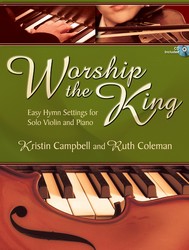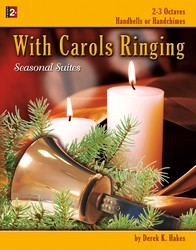- |
User Links
Fill Thou My Life

Fill Thou my life, O Lord, my God
Author: Horatius Bonar (1866)Published in 96 hymnals
Printable scores: PDF, MusicXMLPlayable presentation: Lyrics only, lyrics + musicAudio files: MIDI, Recording
Representative Text
1 Fill thou my life, O Lord my God,
in ev'ry part with praise,
that my whole being may proclaim
thy being and thy ways.
Not for the lip of praise alone,
nor e'en the praising heart,
I ask, but for a life made up
of praise in ev'ry part:
2 Praise in the common words I speak,
life's common looks and tones,
in fellowship enjoyed at home
with my beloved ones,
enduring wrong, reproach, or loss
with sweet and steadfast will,
forgiving freely those who hate,
returning good for ill.
3 So shall each fear, each fret, each care
be turned into a song,
and ev'ry winding of the way
the echo shall prolong.
So shall no part of day or night
from sacredness be free,
but all my life, in ev'ry step,
be fellowship with thee.
Source: Trinity Psalter Hymnal #534
Author: Horatius Bonar
 Horatius Bonar was born at Edinburgh, in 1808. His education was obtained at the High School, and the University of his native city. He was ordained to the ministry, in 1837, and since then has been pastor at Kelso. In 1843, he joined the Free Church of Scotland. His reputation as a religious writer was first gained on the publication of the "Kelso Tracts," of which he was the author. He has also written many other prose works, some of which have had a very large circulation. Nor is he less favorably known as a religious poet and hymn-writer. The three series of "Hymns of Faith and Hope," have passed through several editions.
--Annotations of the Hymnal, Charles Hutchins, M.A. 1872… Go to person page >
Horatius Bonar was born at Edinburgh, in 1808. His education was obtained at the High School, and the University of his native city. He was ordained to the ministry, in 1837, and since then has been pastor at Kelso. In 1843, he joined the Free Church of Scotland. His reputation as a religious writer was first gained on the publication of the "Kelso Tracts," of which he was the author. He has also written many other prose works, some of which have had a very large circulation. Nor is he less favorably known as a religious poet and hymn-writer. The three series of "Hymns of Faith and Hope," have passed through several editions.
--Annotations of the Hymnal, Charles Hutchins, M.A. 1872… Go to person page >Text Information
Related Texts
| First Line: | Fill Thou my life, O Lord, my God |
| Title: | Fill Thou My Life |
| Author: | Horatius Bonar (1866) |
| Meter: | 8.6.8.6 |
| Language: | English |
| Copyright: | Public Domain |
Notes
Scripture References:
st. 1 = Ps. 34:1, Ps. 71:8
Horatius Bonar (PHH 260), famous Scottish evangelical preacher and poet, wrote this text in twelve, four-line stanzas. Entitled "Life's Praise," the text was published in the third series of Bonar's Hymns of Faith and Hope (1866). Like most other hymnals the Psalter Hymnal includes only half of the original text with minor alterations (the most obvious being the change from "intercourse" to "fellowship" in st. 2, which is more in accord today with Bonar's meaning).
The text's theme is the consecration of all life as a doxology to God–the equivalent in hymn form of the neo-Calvinist concept that all of life is religion. Echoing an emphasis of the Old Testament prophets (see Ps. 50 or Isa. 1), this text affirms that "lip service" or an orthodox heart is not enough; we must live our Christianity in every aspect of our lives each day. That sanctity of life includes the intimate setting of family life and, by extension, the entire family of God, the church (st. 2). Such a holy lifestyle is possible only in communion with God, in "fellowship with thee."
Liturgical Use:
Because the whole of Christian life should be a true doxology to the Lord, many occasions of worship.
--Psalter Hymnal Handbook, 1987
Tune
RICHMOND (Haweis)RICHMOND (also known as CHESTERFIELD) is a florid tune originally written by Thomas Haweis (PHH 270) and published in his collection Carmina Christo (1792). Samuel Webbe, Jr., adapted and shortened the tune and published it in his Collection of Psalm Tunes (1808). It was reprinted in 1853 in Webbe's…
ELLACOMBE
Published in a chapel hymnal for the Duke of Würtemberg (Gesangbuch der Herzogl, 1784), ELLACOMBE (the name of a village in Devonshire, England) was first set to the words "Ave Maria, klarer und lichter Morgenstern." During the first half of the nineteenth century various German hymnals altered the…
ST. FULBERT
Timeline
Arrangements
Media
- MIDI file from The Cyber Hymnal #1530
- Audio recording from Lift Up Your Hearts: psalms, hymns, and spiritual songs #356
- Audio recording from Lift Up Your Hearts: psalms, hymns, and spiritual songs #356
- Audio recording from Lift Up Your Hearts: psalms, hymns, and spiritual songs #356
- Audio recording from Lift Up Your Hearts: psalms, hymns, and spiritual songs #356
- MIDI file from Psalter Hymnal (Gray) #547
- MIDI file from Psalter Hymnal (Gray) #547
- Audio recording from Small Church Music #54


 My Starred Hymns
My Starred Hymns







